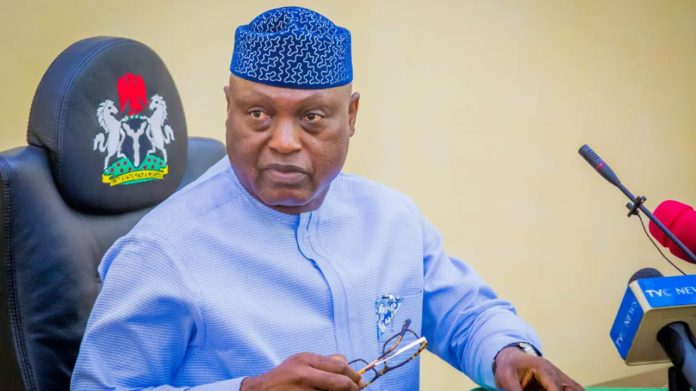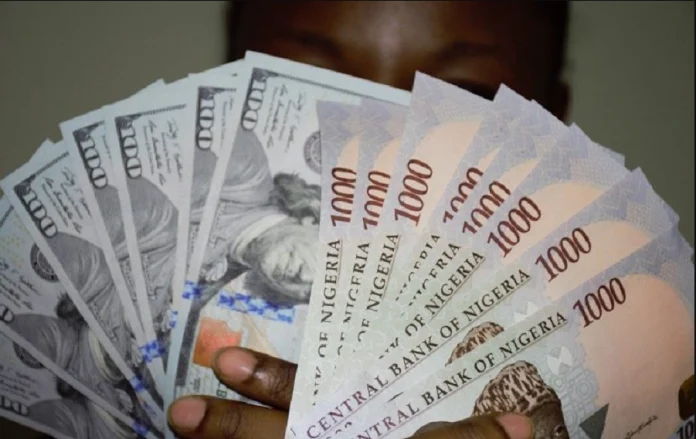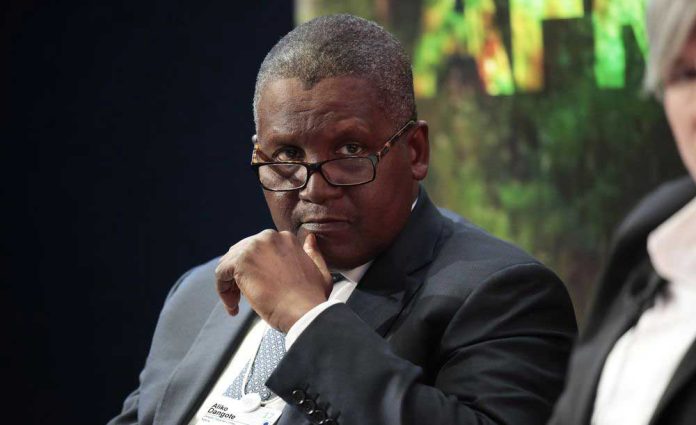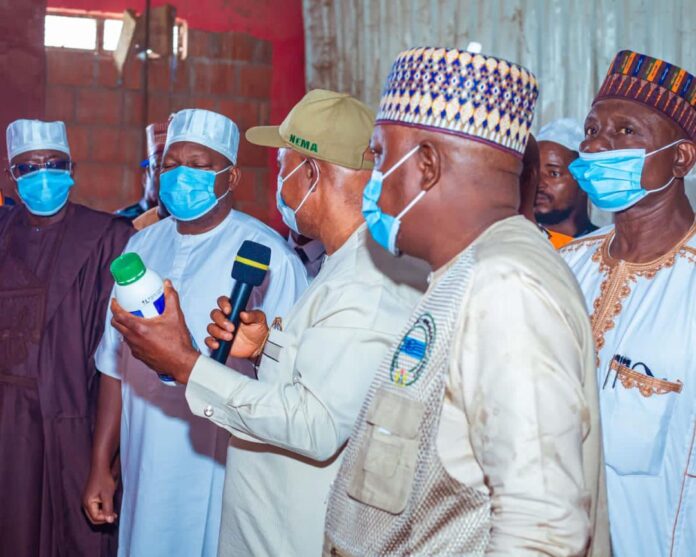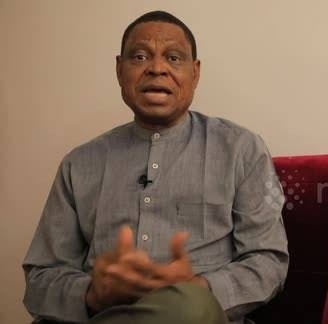By Chinasa Obidi
Despite advancement in medicine globally, some diseases have remained the top killers as more and more persons die from them. Granted, some that once sat on the top ten list have either gone down or left the list, while some other diseases have for a long time continually made the top list.
Malaria remains on that top list of killer diseases in Nigeria and in Africa at large. It sits comfortably on the second position in Nigeria accounting for 12% of deaths according to a 2009 report, while in Africa it sits on the seventh position accounting for 388 deaths per 100,000 deaths.
On the global scene according to healthline, respiratory cancers sit as the fifth highest cause of death. These respiratory cancers include cancers of the trachea, larynx, bronchus, and lungs. A 2015 study reports that respiratory cancer accounts for about 4 million deaths annually. In developing countries, researchers project an 81- to 100-percent increase in respiratory cancers due to pollution and smoking. Many Asian countries, especially India, still use coal for cooking. Solid fuel emissions account for 17 percent of lung cancer deaths in men and 22 percent in women.
Despite these shocking figures, Nigerians and indeed people from all races need not die from these cancers as well as others cancers and malaria any longer.
United States and Nigerian researchers have, in two separate studies published in reputable medical journals, validated the use of local herbal drugs for the treatment of lung cancer and malaria.
The basic constituents of the herbal drugs SAABFAT6 and SAABMAL include: garlic (Allium sativum), lemon grass (Cymbopogon citratus), bitter leaf (Vernonia amygdalina), sugarcane (Saccharum officinarum), green vegetable/Amaranth (Amaranthus caudatus), aloe vera (Aloe barbadensis) and sesame (Sesamum indicum).
United States researchers from Texas Southern University, Houston, Texas, found that the Nigerian-made herbal supplement, SAABFAT6, has the potential for the regulation the growth of colorectal and lung cancer. It has been registered by the National Agency for Food Drug Administration and Control, NAFDAC.
The study published in April 2015 editions of The FASEB Journal and Experimental Biology is titled “Antiproliferative and Cytotoxic Evaluation of Herbal Supplement SAABFAT6 on HT29 Colorectal Adenocarcinoma Cells.”
The researchers, Syntia E Kwende and Momoh A Yakubu, who presented their findings at the American Society for Pharmacology and Experimental Therapeutics, ASPET, yearly scientific meeting concluded: “The consumption of herbal supplements has been one of the remedies for several aliments including cancer for a long time. Cancers, especially colorectal adenocarcinoma are diseases with high morbidity and mortality and are often associated with suffering and poor quality of life.
“Herbal supplements are an attractive cancer therapy; we have investigated the antiproliferative and cytotoxic properties of the herbal supplement SAABFAT6 on colorectal adenocarcinoma cell (HT29). Ethanol extracts of SAABFAT6 (0.5-2 mg/mL) was incubated with HT29 and in vitro antiproliferative/cytotoxicity activities were evaluated using MTT assay.
“Treatment of HT29 with SAABFAT6 significantly reduced cellular proliferation at 48 and 72 but not at 24 hours except for 2 mg/mL concentration. Cytotoxic evaluation showed significant reduction in cell viability at 24 and 48 hrs (2 mg/mL) and at 48 hours (0.5 and 1 mg/mL). This preliminary result indicates that SAABFAT6 supplement may have a potential for the regulation of HT29 growth and survival.
“Further study is required to identify the mechanisms by which the anti-proliferative and cytotoxic effects of SAABFAT6 is mediated.”
Also, Nigerian researchers from the Departments of Pharmacology & Toxicology and Pharmaceutical Technology & Raw Material Development, NIPRD and Halamin Herbal Centre, Abuja, have demonstrated the efficacy of SAABMAL, a local herbal drug, as a herbal antimalarial formulation against chloroquine sensitive malaria and its potential use in the treatment of uncomplicated malaria infection.
The study published in February 2015 edition of Indian Journal of Medical Research is titled “Antimalarial properties of SAABMAL: an ethnomedicinal polyherbal formulation for the treatment of uncomplicated malaria infection in the tropics.”
The researchers led by Prof. Martins Emeje of NIPRD include I.C. Obidike and Prof. Ben Amodu of Haalamin Herbal Centre Abuja.
They concluded: “In conclusion, our results confirmed the efficacy of SAABMAL® as an herbal antimalarial formulation with acceptable capsule qualities. However, there is a need for development of an appropriate analytical technique for monitoring drug release from the formulation. This will assist in developing appropriate stability parameters and bioavailability/bioequivalence studies during clinical trials.”
Amodu who is also the director and chief researcher of the Centre said the study showed that SAABMAL is a remedy for cancer. The researcher and professor of phythomedicine also added that his products when taken to America had been found to have curing capacity of over 75 per cent of both cancers of lung, colon, and pancreas, among others.
Malaria is a serious problem in the countries of the developing world. As the malaria parasite has become resistant to most of the antimalaria drugs available currently, there is a need to search for newer drugs.
This study reported the pharmaceutical quality and in vivo antimalarial activities of a polyherbal formulation (SAABMAL®) used as malarial remedy in Nigeria.
The antiplasmodial activity of SAABMAL® was determined by using the four-day suppressive test in Plasmodium berghei-infected mice. The formulation was tried on three different experimental animal models for in vivo antimalarial activities, which are prophylactic, suppressive and curative in mice. Chloroquine and pyrimethamine were used as standard drugs for comparison.
The suppressive study showed that, SAABMAL® (200 and 400 mg/kg/bw) significantly produced a suppression (29.39 to 100 per cent) of parasitaemia in a dose-dependent manner, while the curative study showed that SAABMAL® at 400 mg significantly reduced (95.80 per cent) parasitaemia compared with controls.
The mean survival time of SAABMAL®-treated groups (100 and 200 mg/kg) was higher than that of the chloroquine-treated group.
The researchers found no changes in the spleen of both untreated and treated groups. SAABMAL® capsules were of good mechanical properties with low weight variation and high degree of content mass uniformity.
They wrote: “The results obtained in this study showed the efficacy of SAABMAL®, a herbal antimalarial formulation against chloroquine sensitive malaria and its potential use in the treatment of uncomplicated malaria infection.
Further studies need to be done in humans to test its efficacy and safety for its potential use as an antimalarial drug.”
Malaria is a problem in every region of the developing world and contributes significantly to mortality, poverty and underdevelopment in endemic regions. The problem is greatest in Africa, where over 80 per cent of malaria cases and death occur.
Amodu who is and industrial pharmacist graduate of Ahmadu Bello University, and professor of phtomedicine from the Triune Biblical University, USA, Zaria said, “Some American scientists visited me and went to my laboratory to pick 10 of my products for cancer. They went to America and started the analysis. The analysis was to find out if my SAAFAAT6 could cure cancer of the colon.
“They set up a test for it, and in the test, they saw that the medicine was doing well, and also discovered it could cure cancer of the lungs. At the end of the test, the medicine came out 89 per cent effective in the cure of both cancers. They did not stop there; this discovery was presented to a gathering of over 18,000 American scientists. SAAFAAT6 was presented as a lead discovery. And for the first time in the world, a food material could be referred to as a chemotherapeutic agent.
“The reaction it gave in those cancers, especially cancer of the lungs, made them to refer to it as a chemotherapeutic agent in the report. As a result of this cure of cancer of the lungs, we now have cure for asthma. There is nowhere in the world that asthma can be cured, but as I speak to you right now, I cure asthma, because asthma is a disease of the lungs.
“Cancer of the lungs is the highest disease of the lungs. Asthma becomes small in the presence of cancer of the lungs. So, when we combine SAABMAL and SAABFAT6 we cure Asthma. There are so many asthma patients that I have cured”.
Reacting to the lifespan of his researches which have been so recognized, Amodu said, “I have a number of people working with me to be able to carry on with this project so that it is not just dependent on the knowledge I have since it is not something that was handed over to me by my parents. It is something we went through procedure of research to get and they are being documented. I have people working with me so that it will outlive me”.
It is hoped that the Nigerian government grabs this opportunity to partner with the researcher to ensure the diversification of the economy.



